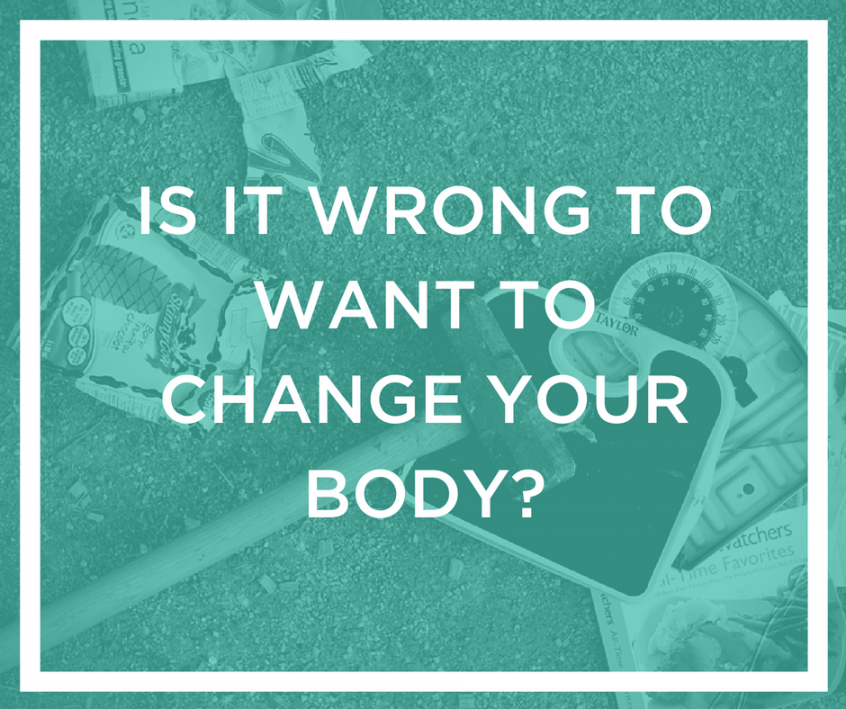
Is it wrong to want to change your body?
With the rise of body positivity and anti-diet messaging, it can feel shameful to still want to change your body. I often hear from people who feel guilty for having a desire to lose weight.
When we’ve been conditioned to believe that our bodies are a problem and weight loss is the solution, most of us are left holding two paradigms simultaneously as we move towards body acceptance.
I often think of this like an ongoing game of tug of war, where we feel the pull in both directions. We can’t simply pull the cord away from diet culture and expect to never feel drawn back again.
Much like our bodies are dynamic, complex and constantly changing, so are our thoughts, beliefs and values.
It is normal to hold two perspectives that conflict with one another. You can have compassion for yourself for wanting to lose weight, while wanting to accept your body.
A desire for weight-loss is born out of a shame-based system of oppression that teaches us that certain bodies (thin, young, white, cisgendered, able-bodied) are more valuable and worthy than others. You were indoctrinated into this system from the moment you became aware of the world around you.
You’re not wrong for wanting to lose weight.
This is an innocent response to living in a culture that values certain (thin, white, young, cis-gendered) bodies that is further complicated by lived experiences.
It is not your fault that you desire it.
It is not your fault if you’ve spent years trying to pursue it or are still pursuing it.
It is nothing to be ashamed of or feel bad about.
That being said, if your pull towards body acceptance feels right in your bones (and I hope it does), there are ways to acknowledge and question the desire to lose weight without sacrificing the steps you’re taking towards acceptance.
Body acceptance grows when we question and challenge why we feel the way we do.
It gets stronger by no longer engaging in the behaviors that uphold the belief that thinner is better (haven’t got rid of the scale yet? Still following weight loss pages on social media or podcasts? That’s where to start).
In order to break free, we have to hold our desire for weight loss up against a standard of unconditional love for ourselves.
How would a smaller body show myself that I am worthy?
Does this support a belief that I am enough just as I am?
What would it look like to value my body and worth in this moment?
With every opportunity we get to challenge our beliefs and refuse to engage in punitive behaviors, we strengthen and reinforce our value and worth.
We show ourselves that we matter.
And the more we do this, the more we break free of the tempting grip of the thin ideal.
